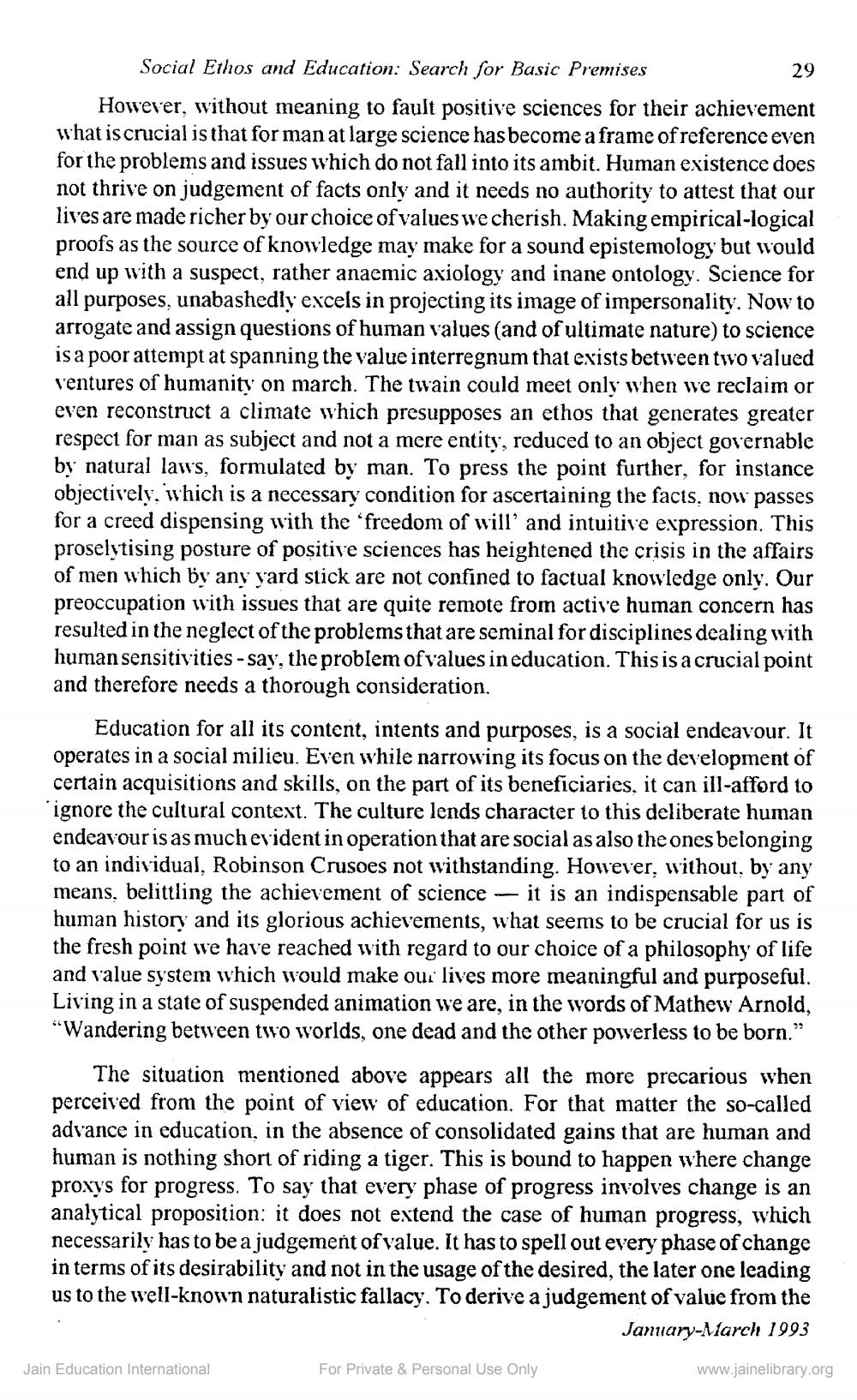________________
Social Ethos and Education: Search for Basic Premises
29 However, without meaning to fault positive sciences for their achievement what is crucial is that for man at large science has become a frame for the problems and issues which do not fall into its ambit. Hum not thrive on judgement of facts only and it needs no authority to attest that our lives are made richer by our choice of values we cherish. Making empirical-logical proofs as the source of knowledge may make for a sound epistemology but would end up with a suspect, rather anaemic axiology and inane ontology. Science for all purposes, unabashedly excels in projecting its image of imperson arrogate and assign questions of human values (and of ultimate nature) to science is a poor attempt at spanning the value interregnum that exists between two valued ventures of humanity on march. The twain could meet only when we reclaim or even reconstruct a climate which presupposes an ethos that generates greater respect for man as subject and not a mere entity, reduced to an object governable by natural laws, formulated by man. To press the point further, for instance objectively, which is a necessary condition for ascertaining the facts, now passes for a creed dispensing with the 'freedom of will' and intuitive expression. This proselytising posture of positive sciences has heightened the crisis in the affairs of men which by any yard stick are not confined to factual knowledge only. Our preoccupation with issues that are quite remote from active human concern has resulted in the neglect of the problems that are seminal for disciplines dealing with human sensitivities - say, the problem of values in education. This is a crucial point and therefore needs a thorough consideration.
Education for all its content, intents and purposes, is a social endeavour. It operates in a social milieu. Even while narrowing its focus on the development of certain acquisitions and skills, on the part of its beneficiaries, it can ill-afford to ignore the cultural context. The culture lends character to this deliberate human endeavour is as much evident in operation that are social as also the ones belonging to an individual, Robinson Crusoes not withstanding. However, without, by any means, belittling the achievement of science - it is an indispensable part of human history and its glorious achievements, what seems to be crucial for us is the fresh point we have reached with regard to our choice of a philosophy of life and value system which would make our lives more meaningful and purposeful. Living in a state of suspended animation we are, in the words of Mathew Arnold, "Wandering between two worlds, one dead and the other powerless to be born."
The situation mentioned above appears all the more precarious when perceived from the point of view of education. For that matter the so-called advance in education, in the absence of consolidated gains that are human and human is nothing short of riding a tiger. This is bound to happen where change proxys for progress. To say that every phase of progress involves change is an analytical proposition: it does not extend the case of human progress, which necessarily has to be a judgement of value. It has to spell out every phase of change in terms of its desirability and not in the usage of the desired, the later one leading us to the well-known naturalistic fallacy. To derive a judgement of value from the
January-March 1993
Jain Education International
For Private & Personal Use Only
www.jainelibrary.org




